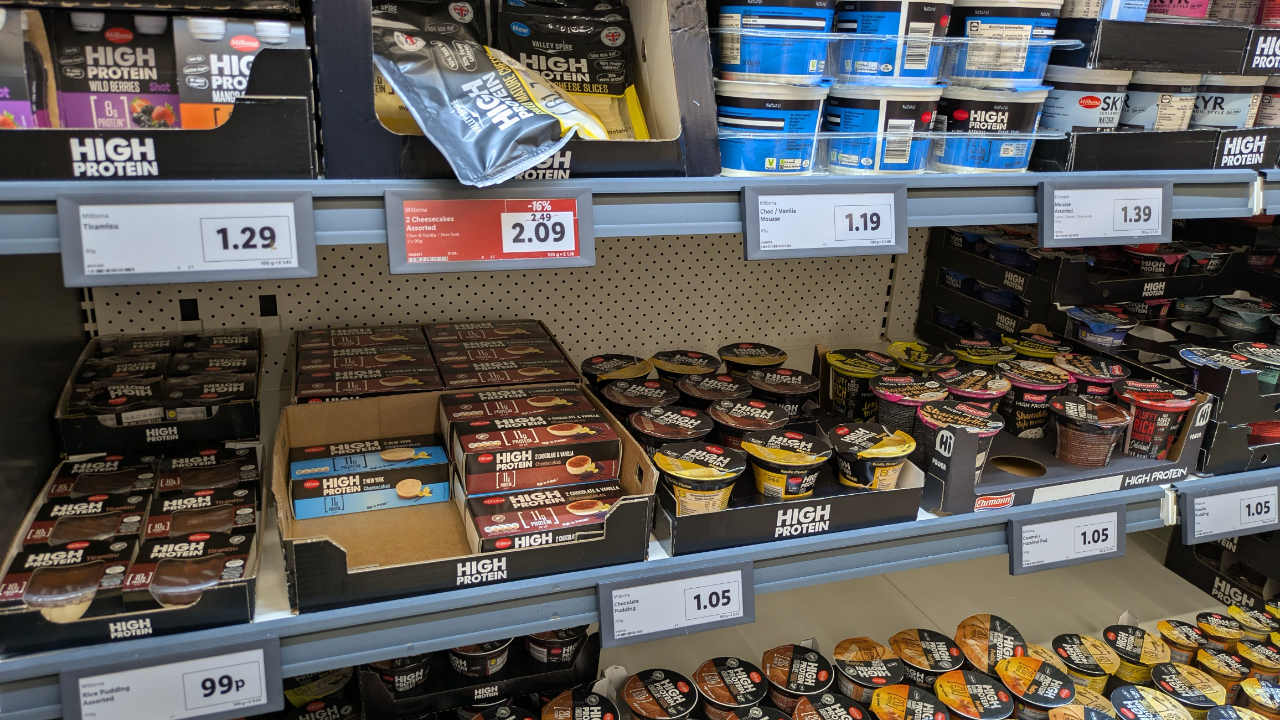The Protein Bandwagon: What Food Marketers Aren't Telling You
Aug 26, 2025
The Protein Bandwagon: What Food Marketers Aren't Telling You
Have you noticed how much protein is plastered on food packaging these days? High-protein cereal, protein bars, protein yogurt, even "protein water." It feels like the entire food industry wants us to believe that the key to health is simply to consume more protein.
But is that really true? As someone with a background in microbiology who's seen firsthand how marketing can twist scientific data, I want to give you some real talk. The protein obsession is just the latest in a long line of marketing tactics that use a "health halo" to sell you something you probably don't need.
The Truth About Protein Needs
I've got a question for you: How much protein do you eat in a day?
If you're like most people, you have no idea. We've been so conditioned to think we need more that we rarely stop to check if we're getting enough. The truth is, it would be pretty hard to be protein deficient in the UK if you're eating enough calories.
The recommended daily allowance (RDA) to prevent deficiency for a sedentary adult is 0.8 grams per kilogram of body weight. For a person who weighs 75 kg (about 11 stone 11 lbs), that's just 60 grams of protein per day.
But most people in the UK are already eating more than this, consuming around 1.2 to 1.6 grams per kilogram, even without trying! Unless you're a serious athlete or over 50 (when protein needs increase slightly to protect against muscle loss), you're almost certainly getting more than enough.
The Problem With Too Much Protein
The marketing slogan "more is better" is particularly misleading when it comes to protein. Your body can’t store protein, so once it's met its needs for repair and muscle synthesis, any extra is either used for energy or stored as fat.
- You can't absorb unlimited amounts. Studies indicate that our bodies can efficiently use about 20-30 grams of protein in one sitting. Anything more than that is no more beneficial and will likely just be converted to energy. This is a perfect example of why those huge protein shakes after a workout might be a waste of money.
- The Gut Microbiome Effect. This is a subject close to my heart. When you have a very high protein diet, more of that protein escapes digestion in the small intestine and reaches the large intestine, where most of your gut microbes live. Here, the microbes ferment that protein, and some of the byproducts—like ammonia and certain phenols—can be detrimental to gut health.
It's a huge conundrum for scientists because while animal protein is more digestible, some of its byproducts can be linked to negative health outcomes. On the other hand, a plant-based diet, despite being less digestible, is consistently linked to better health outcomes, likely because of the accompanying fiber. The research is complicated, but what we do know is that a very high-protein diet can negatively impact your gut microbiome.
Spotting the BS: Beyond the "High Protein" Label
The "high protein" claim on a package might be a legal claim, but it’s still a powerful marketing trick. A product can be "high protein" (1.6 grams per kg of energy) or a "source of protein" (12% of its energy) and still be ultra-processed. In fact, many common vegetables like broccoli, spinach, and mushrooms would legally qualify as a "source of protein" because of their protein to calorie ratio—but you'll never see that on a packet because broccoli farmers are not spending money on marketing and processing the veg into something that’s worth more.
The protein obsession is a distraction and often gets up to buy and ultra-processed food because we think it is healthier.
The Final Word
Ultimately, there is nothing that compares to a varied whole-food diet, ideally one that you cook yourself. The real priority is not to increase your protein intake but to focus on increasing the variety, fibre, and whole foods you eat. That is the best way to support your overall health and your gut microbiome.
I’d encourage you to concentrate far more on eating a wide range of colourful fruits and vegetables, grains, nuts, and seeds. Protein will be taken care of naturally.
Selected References
-
J Int Soc Sports Nutr. 2018 Feb 27;15:10. How much protein can the body use in a single meal for muscle-building?
-
iScience 25, 105313, November 18, 2022. Dietary protein and the intestinal microbiota: An understudied relationship.
-
British Nutrition Foundation. Protein. https://www.nutrition.org.uk/nutritional-information/protein/
- American society for microbiology https://asm.org/press-releases/2024/june/high-protein-diet-impact-gut-microbes-body-comp
Download our FREE 'The Budget Friendly Guide to Reducing Ultra Processed Foods' eBook and learn how to start to reduce UPF.


